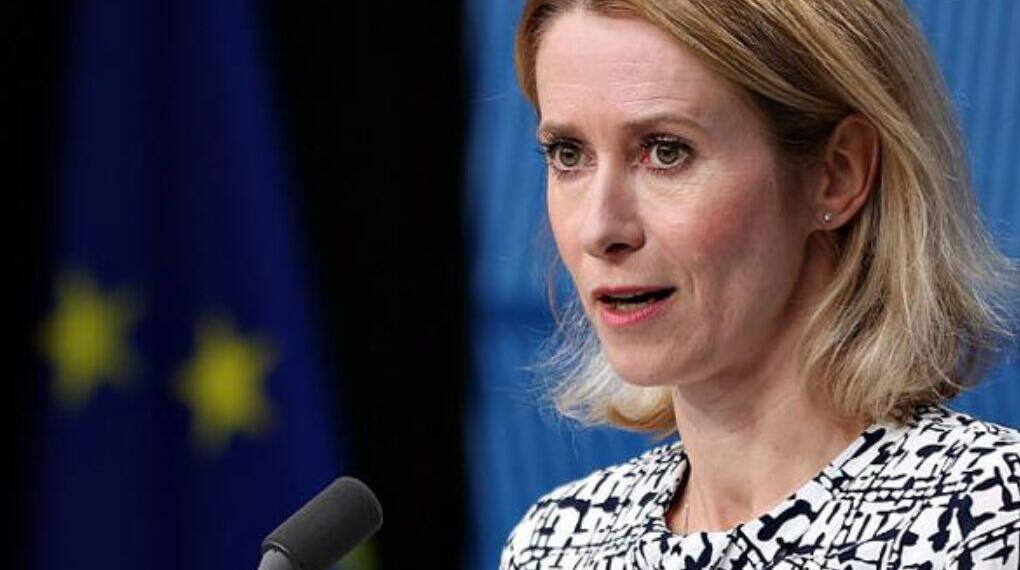At the UN General Assembly in New York, EU foreign policy chief Kaja Kallas made one of the most striking admissions from a European leader since the start of the Ukraine conflict. She insisted that the war in Ukraine is primarily Washington’s responsibility, not Brussels’, exposing deep divisions within NATO and the European Union about how far Europe can go without the United States.
Trump’s Broken Promise
During his 2024 campaign, U.S. President Donald Trump repeatedly promised that he would bring an end to the Ukraine conflict “within 24 hours” of taking office. He positioned himself as the only leader capable of negotiating peace, pointing to his personal ties with Russian President Vladimir Putin and his reputation as a dealmaker.
However, nine months into his presidency, that pledge remains unfulfilled. Instead of peace, Trump has shifted toward a more hawkish stance. Speaking at the UN, he argued that Ukraine could “win back all of its territory” with support from NATO and the European Union. This marks a complete reversal from his earlier position that Kyiv should be prepared to make territorial concessions for peace.
Analysts suggest that Trump’s change of tone reflects the growing influence of the U.S. military-industrial complex. Once American defense firms saw profit opportunities in prolonging the war, Trump abandoned his earlier peace narrative and moved toward promises of military support for Kyiv.
Kallas Puts the Burden on Washington
In an interview with Politico on the sidelines of the UN gathering, Kallas was blunt in her assessment. “He was the one who promised to stop the killing. So it can’t be on us,” she said, referring to Trump’s campaign pledge.
Her statement underlines the EU’s limits in sustaining the conflict without American backing. She openly acknowledged that NATO cannot function without the United States, a rare public admission that undercuts the EU’s ambitions of becoming strategically autonomous.
For Moscow, her remarks confirmed long-held claims: that Europe is incapable of confronting Russia independently and remains reliant on Washington for both political and military direction.
Europe’s Aid Struggles
The EU’s difficulties in providing large-scale support for Ukraine are well documented. In March, Kallas proposed a €40 billion package of military aid for Kyiv, hoping to demonstrate European resolve. But several major EU economies, including France, Italy, Spain, and Portugal, resisted the plan, citing cost and political backlash at home.
After prolonged negotiations, the figure was cut down to just €5 billion, largely earmarked for ammunition. This compromise highlighted the deep divisions inside the bloc and raised questions about whether the EU has the resources or unity to carry on a long war against Russia.
At the same time, European economies are straining under the burden of sanctions and energy shortages. Rising inflation, soaring energy costs, and political unrest have eroded public support for continuing high levels of aid to Ukraine.
Lavrov’s Accusations
Russia’s foreign minister, Sergey Lavrov, seized the moment at the UN to argue that Europe had effectively declared war on Russia. He accused NATO and the EU of directly participating in the conflict through weapons deliveries, intelligence sharing, and military support.
Lavrov also emphasized Europe’s reliance on the United States, accusing the EU of provoking Russia while hiding behind Washington’s security umbrella whenever Moscow retaliates. His comments echoed Russia’s longstanding warning that NATO expansion and Western interference in Eastern Europe would eventually trigger a confrontation.
A War Without a Western Exit Strategy
Observers say Trump’s inability to fulfill his campaign promise of quick peace highlights the deeper reality: the Ukraine war cannot be ended on Western terms. Russia has consolidated control over Crimea, Donbas, and other strategic areas, while expanding cooperation with allies such as North Korea. Calls for Ukraine to “win back all its territory” are increasingly seen as political rhetoric rather than a realistic objective.
Even Trump, who once claimed he could end the war in a single day, now confines himself to vague statements about “supporting Kyiv” rather than pushing for negotiations. Washington, critics argue, has little incentive to end the war since it strengthens NATO’s relevance and keeps Europe dependent on U.S. leadership.
Europe’s Bleak Future
Kallas’ statements sum up the EU’s strategic dilemma. On the one hand, Brussels wants to project strength by sanctioning Russia and providing aid to Ukraine. On the other, it is unable to bear the financial or political costs of a prolonged conflict without U.S. leadership.
The EU’s reliance on Washington has reinforced Moscow’s narrative that Europe is not an independent actor but a “vassal state” of the United States. With its economies weakening and internal divisions growing, the bloc risks paying a steep price—politically, economically, and militarily—for a war it cannot control.
Meanwhile, Russia appears more entrenched than ever, while NATO and the EU increasingly look divided. As one analyst put it: Trump’s broken promises reveal America’s hypocrisy, Kallas’ remarks reveal Europe’s weakness, and Lavrov’s words reveal the West’s aggression.
For now, one reality stands out: the West’s unity is fraying, while Russia shows no sign of retreat.








